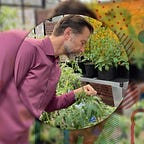The Vitality of Farming: Why Agriculture Matters
Farming is one of the oldest and most important industries in the world. It involves cultivating land, raising animals, and growing crops for food, fiber, and fuel. But beyond its basic definition, farming plays a critical role in our society and economy. In this article, we will explore how farming is important and why it matters.
Ensuring Food Security
Food is one of our basic needs for survival, and farming is the backbone of our food system. Agriculture provides us with fruits, vegetables, grains, meat, dairy products, and other essential foods that we consume daily. Farmers work tirelessly to tend to their crops and livestock, ensuring that they are healthy and free from disease.
Without farming, we would not have enough food to feed the world’s population. As the global population continues to grow, it is becoming increasingly important to produce more food while also protecting the environment. This is where sustainable agriculture comes into play, which is a method of farming that aims to balance food production with environmental preservation.
Supporting Local Economies
Farming is not just about producing food; it also supports local economies. Many farmers sell their products at farmers’ markets, roadside stands, and other local venues, creating jobs and generating income for their communities. Additionally, agricultural businesses such as equipment suppliers, seed companies, and agrochemical manufacturers also contribute to local economies.
Moreover, farming promotes rural development, which is vital for maintaining strong and vibrant communities. By keeping small towns and rural areas economically sustainable, farming helps preserve our cultural heritage and way of life.
Protecting the Environment
Farms are essential components of our natural ecosystem. By preserving open spaces and wildlife habitats, farms promote biodiversity and help prevent soil erosion, water pollution, and climate change. Moreover, many farmers practice sustainable agriculture, which involves methods such as crop rotation, conservation tillage, and integrated pest management.
Such practices help reduce the use of harmful pesticides and fertilizers, conserve water and soil resources, and promote healthy ecosystems. By protecting the environment through sustainable farming methods, we can ensure that our planet remains habitable for future generations.
Providing Opportunities for Innovation
Farming also provides countless opportunities for innovation. From the development of new seed varieties to the creation of precision farming technologies, agriculture is a field that constantly evolves and adapts. Farmers are always looking for new and better ways to grow crops and raise animals more efficiently and sustainably.
As technology continues to advance, we may see even more innovations in agriculture, such as genetic engineering and artificial intelligence. Such advancements could help us produce more food with fewer resources and address some of the challenges that our food system faces.
Conclusion
In conclusion, farming is an essential industry that affects nearly every aspect of our lives. It provides us with food, creates jobs and income, protects the environment, promotes rural development, and fosters innovation. As we continue to face global challenges such as climate change, food insecurity, and economic inequality, the importance of farming becomes even more evident. By supporting sustainable agriculture and investing in our farmers, we can create a more resilient and equitable world for all.
